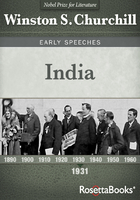On September 11, 2001, I switched on the TV in my Justice Department office at the Robert F. Kennedy Building in time to see the second plane, United Airlines flight 175, fly into the World Trade Center tower. Then American Airlines flight 77 hit the Pentagon. Later I learned that my friend Barbara Olson, wife of Solicitor General Ted Olson, had been on it. Rumors of attempted attacks on the White House, the Capitol, the Supreme Court, and the State Department flew around our offices even as the phone lines to the Defense Department and the White House stopped working.
That morning official Washington, D.C. evacuated in the face of a foreign attack for the first time since the British invasion in the War of 1812. I and a skeletal staff of the Office of Legal Counsel (OLC) stayed behind. That night, our country's leaders had to decide whether the United States was at war. FBI officials were already making significant headway in identifying the hijackers, and it soon became apparent even in the hectic aftermath of the attacks that several were al Qaeda operatives. Headed by Osama bin Laden, al Qaeda, which means "the base" in Arabic, had carried out deadly terrorist attacks against Americans for several years, including the bombing of two American embassies in Africa and the USS Cole in Yemen, and had failed at other, even more deadly, attempts.
Uncertainty about whether September 11 started a war is at the root of most of the confusion about the United States' strategy in the war on terrorism. Critics of the Bush administration's terrorism policies believe that terrorism is a crime. They say that terrorism, even attacks as destructive as those on 9/11, by definition cannot justify war, because we are not fighting another nation. Former Clinton Justice Department official and Harvard law professor Philip Heymann states that "war has always required a conflict between nation states."[1] Former senator and presidential candidate Gary Hart and historian Joyce Appleby put the view nicely: "The 'war on terror' is more a metaphor than a fact. Terrorism is a method, not an ideology; terrorists are criminals, not warriors."[2] Yale professor Bruce Ackerman begins a recent book by declaring: "'War on terror' is, on its face, a preposterous expression," and devotes his first chapter to arguing that "this is not a war."[3]
If 9/11 did not trigger a war, as these critics contend, then the United States is limited to fighting al Qaeda with the law enforcement and the criminal justice system, with all of their protections and delays. Lawyers for captured al Qaeda operatives argued before the Supreme Court that it was illegal to detain them. Either the government should charge them with crimes, give them lawyers, and begin a jury trial, or it should let them go.[4] Former Clinton Attorney General Janet Reno filed a brief in support of a petition to release accused al Qaeda agent Jose Padilla on the ground that law enforcement "tools available now provide the Executive Branch with broad authority and flexibility to respond effectively to terrorist threats within our borders," and that no resort to war was needed.[5]
This position would dangerously return us to the more comforting certainties of the pre–September 11 world. For decades, the United States had dealt with terrorism primarily as a crime subject to the law enforcement and the criminal justice systems. In response to previous al Qaeda attacks, the United States dispatched FBI agents to investigate the "crime scene" and tried to apprehend terrorist "suspects." Federal prosecutors succeeded in putting a few of them on trial in federal court in New York.[6] Ironically, the federal judge issued rulings on the 1993 World Trade Center bombing just weeks before the hijacked planes crashed into the towers. Efforts to capture or kill al Qaeda leader Osama bin Laden throughout the 1990s were shelved, out of concerns that the Justice Department did not have enough evidence to satisfy the legal standard for a criminal arrest.
A return to this state of affairs would be a huge mistake. Bipartisan studies of the failings that led up to 9/11 refer to the inadequacy of the criminal justice approach to deal effectively with an ideologically motivated military organization like al Qaeda. If 9/11 started a war between the United States and al Qaeda, the United States can employ its war powers to kill enemy operatives and their leaders, detain them without trial until the end of the conflict, interrogate them without lawyers or Miranda protections, and try them without civilian juries. No doubt these measures seem unusual, even draconian, but the rules of war provide nations with their most forceful tools to defend their people from attack. We are faced with the difficult task of adapting those rules for the unprecedented appearance on the world stage of an enemy that, while not a nation, can inflict violence at a level once only in the hands of nations. To make wise policy choices, it is essential to understand the difference between, and the appropriate uses of, war as opposed to criminal prosecution. War is too important to be the subject of partisan politics.
Here is how we at the Justice Department sat down to think about September 11. On that clear, sunny day, four coordinated attacks had taken place in rapid succession, aimed at critical buildings at the heart of our national financial system and our nation's capital. The terrorists who hijacked these airplanes in some ways had conventional military objectives—to decapitate America's political, military, and economic headquarters. They failed at the first, partially achieved the second (the American Airlines flight from Dulles Airport to Los Angeles struck a recently modernized and reinforced section of the Pentagon, resulting in far lower casualties and destruction than it would have otherwise inflicted), and succeeded at the third. The attacks killed more people than the Japanese Navy had killed at Pearl Harbor—approximately three thousand, with thousands more injured. They also disrupted air traffic and communications, closed the national stock exchanges for days, and caused billions of dollars in damage.
The attackers wore no uniforms, carried no arms openly, and did not operate as part of regular military units. Instead, Mohammed Atta and his eighteen fellow hijackers disguised themselves as civilians, used civilian aircraft as weapons, and launched their attacks by surprise from within our borders. Deliberately targeting and killing civilians is deeply immoral, violating the core principle of the law of war—that combatants are only to target each other and must attempt to minimize harm to innocent civilians.[7]
The attacks were both vicious and skillful. Al Qaeda's operatives infiltrated past our immigration and border controls, operated within our borders for years, and gained the skills needed to fly airplanes into buildings at schools in the United States without ever being detected by American intelligence or law enforcement. They simultaneously hijacked four aircraft within minutes of each other, and succeeded in hitting three of their targets with devastating effect. Even though they were going to their certain deaths, the hijackers maintained operational security for months, if not years, and managed to take the United States completely by surprise. Without any conventional armed forces or the military resources of a nation-state, al Qaeda inflicted a level of destruction on the United States that only a few nations would have been capable of achieving. Evil doesn't necessarily mean stupid or incompetent.
If a nation-state had carried out the same attacks on the same targets, there would have been no question about whether a state of war would have existed. If, during the Cold War, the Soviet Union had sent KGB agents to drive airplanes through American skyscrapers, the United States would have retaliated, our nation would have gone on a war footing, and our mutual self-defense agreements with other countries would have come into play. Why should status as an international terrorist organization rather than a nation-state make a difference as to whether we are at war?
Who We Fight
The most singular and defining characteristic of the hijackers to a lawyer, the one that makes them unprecedented in our history, is that they fight on behalf of no nation. They launched their attacks on behalf of a network of Islamic radicals who have dedicated themselves to a terror jihad against the West. Many were from Saudi Arabia, one of the United States' closest and oldest allies in the Middle East. While al Qaeda did not immediately claim responsibility for the attacks, American intelligence became certain of its responsibility. Videotape later captured in Afghanistan showed al Qaeda leaders discussing their planning and goals for the operation.
While al Qaeda was not a household word before the September 11 attacks, the United States had suffered repeated attacks at its hands. These include the suicide bombing of the USS Cole in 2000, the bombing of American embassies in Kenya and Tanzania in 1998, the attack on a U.S. military housing complex in Saudi Arabia in 1996, and the bombing of the World Trade Center in 1993. Only good intelligence and law enforcement work, helpful allies, and luck had frustrated planned attacks on American airliners over the Pacific Ocean, at Los Angeles airport during the millennium, and at various American embassies and personnel in Europe and Asia.
Public information about the group remains incomplete, but there is much agreement on its basic features and goals. Al Qaeda is a network of terrorists who wish to engineer fundamental political and social change in the Middle East. Some members, including bin Laden, are veterans of the successful resistance to the Soviet occupation of Afghanistan. With the help of Saudi funding, the Reagan administration helped train and arm mujahadeen resistance fighters from many different Arab countries to defeat the Soviets. When the war ended, some of these fighters banded together with the aim of overthrowing Arab regimes at home. They seethed at the rise of the Christian West, the decline of the Islamic caliphate—which had once stretched from India to Spain—the presence of American troops in the holy land of Saudi Arabia, and at current Arab regimes, which they saw as corrupt and untrue to fundamentalist Islamic principles.
It is as important to understand al Qaeda's ideology as it was to know the worldview of our communist opponents in the Cold War. Al Qaeda members view recent history as a Manichaean struggle between Islam and the West.[8] To them, the United States is the cause of the conflicts and reverses suffered by the Islamic world. Over the long term, al Qaeda thinkers believe America must be forced to withdraw from the Middle East and that U.S. citizens must be converted to Islam. Attacking the United States also serves the near-term objective of undermining its Arab allies in Egypt, Saudi Arabia, and Jordan and replacing them with a fundamentalist Islamic caliphate.[9] "Our fight against these governments is not separate from our fight against" the United States, bin Laden says.[10] Publicity is another goal. Showing the United States to be weak and vulnerable helps al Qaeda to gain new recruits and destabilize secular governments in predominantly Islamic parts of the world. While other Islamic terrorist groups have focused on Israel, for bin Laden and his followers the United States is "the head of the snake."[11]
Al Qaeda had announced its goals at least as early as 1996, when bin Laden issued a fatwa—an interpretation of Islamic law—calling on Muslims to drive American troops out of the Middle East. Two years later, bin Laden and his number two, Egyptian doctor Ayman al Zawahiri, declared war against all Americans, saying that it was "the individual duty for every Muslim who can do it in any country in which it is possible to do it" to kill an American.[12] In an ABC interview shortly thereafter, bin Laden said that "the worst thieves in the world today and the worst terrorists are the Americans. Nothing could stop you except perhaps retaliation in kind."[13] The question was never whether al Qaeda wanted to attack the United States and kill its citizens. The question was only if it had the wherewithal to carry out its threats.
In 2001, al Qaeda had several sources of support. Most directly, it had the shelter of the Taliban in Afghanistan. The Taliban, in turn, received support from Pakistan's military and intelligence services. Al Qaeda gave the Taliban money and a core of loyal fighters; in exchange al Qaeda got a training base and a safe harbor from which to operate. In 2001 as well as today al Qaeda receives its financial support from private and religious charities and individuals, mainly based in Saudi Arabia. It draws its manpower from the pool of disaffected, alienated, or unemployed young men bitter over the Arab world's poverty and decline. It appeals to their fundamental religious beliefs in a time of unsettling change wrought by globalization and social upheaval.
Al Qaeda benefits from our technological age, in which small guerrilla bands, aided by the spread into the global public domain of virulent technologies—chemical, biological, and nuclear—can wreak destruction such as no small group has ever been able to before.
Al Qaeda's terrorist campaign against the United States and its allies continues to this day. It is believed to have been responsible for, or connected with, numerous terrorist incidents following September 11, including the December 2001 attempt by Richard Reid to ignite a shoe bomb on a transatlantic flight from Paris to Boston, an April 2002 explosion at a synagogue in Djerba, an October 2002 explosion on a French oil tanker off the Yemeni coast, a series of bombs on the Indonesian resort island of Bali that same month, and two attacks on Israeli targets in Kenya in November 2002. Al Qaeda apparently carried out the bombings of the Madrid train stations in 2004 that led to the withdrawal of Spanish troops from Iraq, and its operatives are behind some of the attacks on American troops currently in Iraq supporting that country's new government. It may also have been behind the London bombings on July 7, 2005.
Al Qaeda operates in an unconventional and, as strategic analysts like to say, asymmetric manner. Its operatives do not wear uniforms, nor do they form conventional units or force structures. Rather, their personnel, material, and leadership are organized in covert cells. Al Qaeda has no interest in meeting American armed forces on the battlefield, but resorts to surprise attacks, primarily on civilian targets, using unconventional weapons and tactics. Victory for al Qaeda does not mean defeating the enemy's forces and negotiating a political settlement, but demoralizing the enemy's society and coercing it to act in ways that al Qaeda prefers.
Another factor that distinguishes the conflict with al Qaeda from previous wars is jurisdiction, an issue that crops up whenever lawyers become involved. In earlier modern American conflicts, hostilities took place on a foreign battlefield. The United States home front was largely safe between two oceans. Today the battlefield may be anywhere. Possessing no territory, population, or regular armed units, al Qaeda depends on the covert use of global transportation and commercial channels to move its men and resources across borders undetected. This erases the traditional boundaries between the battlefield and the home front.
Why War
The United States has faced violence from non–state actors before. We have used the criminal justice system to handle pirates, domestic terror groups, the Mafia, and drug cartels. But there is a line, however indistinct, between crime and war. In war, nations use special powers to prevent future attacks on their citizens and territory, not to punish past conduct. Law enforcement tries to solve crimes that have occurred in the past. Our military and intelligence agents seek to stop deadly foreign attacks that may happen in the future. The difference in purpose dictates different tools. The FBI and the DEA—not the U.S. armed forces—have prime responsibility for interdicting drug smuggling (although the military sometimes plays a supporting role). They seek to disrupt the operations of drug cartels with traditional tools of law enforcement: interviewing witnesses, collecting physical evidence, and carrying out surveillance. An investigation usually occurs only after a crime has occurred. Deadly force may be used only if necessary to defend the law enforcement agent's life, or another's, against an imminent attack.
Crime is generally committed for personal gain or profit rather than a larger political goal. Drug cartels employ murder, kidnapping, robbery, and destruction to create a distribution network, grab turf from other gangs, intimidate rivals or customers, and even retaliate in military fashion against law enforcement. Al Qaeda resembles organized crime like the Mafia in some respects, but the Mafia is unconcerned with ideology and is primarily out to satisfy its greed.
War involves opposing political objectives. The United States went to war in World War II to achieve regime change in Germany and Japan; they went to war to conquer territory. We resorted to armed force in Korea, Vietnam, and Panama, among other places, to stop the spread of harmful ideologies or to remove corrupt regimes. Like a nation's, al Qaeda's attacks are highly organized, military in nature, and aimed at achieving ideological and political objectives.[14] Crime can certainly be involved in its fund-raising efforts, such as stealing money or defrauding charities, but al Qaeda uses this money for military and intelligence efforts rather than for the mere accumulation of wealth.[15]
Critics of the war on terror often point out that the September 11 attacks began and ended in the United States and are thus only domestic criminal acts. This ignores, however, the fact that the attacks were planned, controlled, and financed by a foreign organization. The domestic site of the 9/11 attacks does not render them acts of crime rather than war. True, the bombing of the Oklahoma City federal building was a warlike attack, but it was carried out by a citizen associated with a group that was far too small and disorganized to suggest any need for war. Domestic violence can sometimes rise to the level of a rebellion or insurrection and qualify as war, like the Civil War. If anything, the domestic focus of the attacks is the most compelling argument for war.
Crime is an endemic, diffuse social problem that has persisted throughout human history. By contrast, war is a set of discrete and violent acts undertaken by a nation or entity for political gain. Were the attacks organized and systematic enough to be considered "armed conflict"? The gravity and scale of September 11 surely crossed that threshold. One international treaty defines armed conflict as attacks that rise above "riots, isolated and sporadic acts of violence and other acts of a similar nature."[16] The Bali, Madrid, and London episodes, together with the bombings in Iraq, are part of a sustained and coordinated campaign against the United States and our allies by a single network in pursuit of an ideological agenda.
Although it seems circular, one way to know if the line between crime and war has been crossed is simply to note whether nations must turn to a military response. Necessity creates war, not a hovering zeitgeist called "law." If only the military has the capability to do what must be done, such as destroying enemy camps in Afghanistan, and it is sent to do it, then it is war. The fact of a military response is one way international law decides if an action constitutes war.[17] In fact, if terrorism were a criminal problem, we could barely use the military at all, thanks to a law called the Posse Comitatus Act, which prohibits the use of the armed forces to enforce our laws except in times of narrowly defined emergencies.[18] Though diplomacy and law enforcement will play important roles, few truly believe that they alone can bring al Qaeda to justice and prevent future attacks. War is violence on a large scale, of the kind we saw on September 11, undertaken for political reasons by a foreign state or entity, which requires a military response.
OLC's thinking culminated in a legal opinion that we issued before the month was out. The White House had asked about the President's authority to carry out military attacks against those responsible for the September 11 attacks and those who harbored or assisted them. On September 25, 2001, I signed an OLC opinion issued to the White House which concluded that a foreign attack had occurred on September 11, the United States was at war, and President Bush had full constitutional authority to launch attacks to destroy the enemy. President Bush had the power "not only to retaliate against any person, organization, or state suspected of involvement in terrorist attacks on the United States, but also against foreign states suspected of harboring or supporting such organizations."[19] This power was not punitive. It included the power "to deploy military force preemptively against terrorist organizations."
As Justice Departments and attorneys general had concluded in the past, we believed that the President could use force abroad alone, if necessary, without Congress's authorization. The constitutional text and structure granted the President this responsibility by making him chief executive of the nation and commander in chief of the armed forces. So had constitutional practice, including wars from Korea to Kosovo and retaliatory strikes against terrorism in Libya, Iraq, and Sudan. As a law professor, I had written that the President could wage hostilities abroad without congressional permission, a position supported by historical practice. I took issue with the views of several leading scholars who were critical of the Vietnam War or the Reagan and first Bush administration's foreign interventions.[20] Nearly all scholars agree that if the United States were attacked, no declaration of war was necessary and the President could immediately respond with armed force. Congressional support was welcome, but in our view it was not constitutionally required.
In the meantime, the President and Congress moved quickly to recognize the state of war between the United States and al Qaeda. In his address to a joint session of Congress on September 20, 2001, President Bush declared: "On September the eleventh, enemies of freedom committed an act of war against our country."[21] And in November 2001, President Bush issued an executive order which stated: "International terrorists, including members of al Qaeda, have carried out attacks on United States diplomatic and military personnel and facilities abroad and on citizens and property within the United States on a scale that has created a state of armed conflict that requires the use of the United States Armed Forces."[22]
Congress agreed. On September 18, Congress enacted an Authorization for Use of Military Force (AUMF)—if not a declaration of war in name, a declaration of war in purpose. It pronounced the September 11 attacks "grave acts of violence" that "pose an unusual and extraordinary threat to the national security and foreign policy of the United States." They justified a military response: "Such acts render it both necessary and appropriate that the United States exercise its rights to self-defense and to protect United States citizens both at home and abroad." (Under international law, the right to self-defense is triggered by an armed attack or the threat of one.) Congress recognized that "the President has authority under the Constitution to take action to deter and prevent acts of international terrorism against the United States."
This wasn't just a nonbinding expression of condemnation of the attacks. The law empowered the President "to use all necessary and appropriate force against those nations, organizations, or persons he determines planned, authorized, committed, or aided the terrorist attacks that occurred on September 11, 2001."[23] The President's authority was not limited to the immediate perpetrators of the attacks but to any nation, entity, or individual who has "harbored such organizations or persons, in order to prevent any future acts of international terrorism against the United States by such nations, organizations or persons." Congress had declared things to be a threat to national security, like drug trafficking or organized crime, but had never before authorized the President to use "all necessary and appropriate force" against these entities.
In October 2001, President Bush ordered the United States military to attack al Qaeda and the Taliban militia harboring them in Afghanistan. This campaign drove al Qaeda and Taliban forces from their strongholds and permitted the installation of a friendly provisional government in Afghanistan.
The Justice Department and the FBI launched a sweeping investigation in response to 9/11. Congress enacted the Patriot Act in October 2001 to expand the Justice Department's powers of surveillance against terrorists.[24] By executive order, the President created a new Office for Homeland Security within the White House to coordinate the domestic program against terrorism. Congress later established a cabinet-level Department of Homeland Security consolidating twenty-two previously disparate domestic agencies into one department to eliminate overlap, turf struggles, and confusion.[25]
Some complain that these measures violate the Constitution because we cannot use military measures against crime. Bush administration rhetoric even seems to suggest this at times. The terminology "war on terrorism" causes confusion by suggesting that we are at war with a combat tactic, not a concrete enemy, as former CIA director James Woolsey has pointed out. He likens a "war against terrorism" to a "war against kamikazes." The war on terror to many ears echoes the avowedly metaphorical "war on drugs" that has always been fought as a criminal matter.[26] Our political leaders have watered down "war" in the interests of mobilizing the nation to solve persistent social problems. However, the United States is not at war with every terrorist group in the world, or all who employ terrorist tactics, or a social problem, but with al Qaeda.
Rhetoric aside, it is perfectly clear that we are now engaged in an international armed conflict with al Qaeda, however much politics may fog the issue. Critics may try to get a federal court to rule that this is not war, or the laws of war do not apply, or that the United States must use only criminal law enforcement tools. But so far, the courts have not upheld this position. It is true that the Supreme Court's 2004 decision on enemy combatants was read by some as dealing a blow to the Bush administration's interpretation of the war on terrorism. Rasul v. Bush held that the federal courts would—for the first time—review the grounds for detaining alien enemy combatants held outside the United States.[27] In Hamdi v. Rumsfeld, the justices required that American citizens detained in the war have access to a lawyer and a fair hearing.[28]
On closer examination, Hamdi actually affirmed the administration's basic legal approach to the war and left the executive branch plenty of flexibility to prevail in the future. Despite enormous political pressure from the media, the academy, and activist litigators, the justices did not turn the clock back to September 10, 2001. They agreed that the United States was indeed at war, one authorized by Congress. As Justice O'Connor wrote for the Court's plurality:
There can be no doubt that individuals who fought against the United States in Afghanistan as part of the Taliban, an organization known to have supported the al Qaeda terrorist network responsible for [the September 11] attacks, are individuals Congress sought to target in passing the [Authorization for Use of Military Force]. We conclude that detention of individuals falling into that limited category we are considering, for the duration of the particular conflict in which they were captured, is so fundamental and accepted an incident to war as to be an exercise of the "necessary and appropriate force" Congress has authorized the President to use.[29]
The justices implicitly recognized in Hamdi that the United States may use all the tools of war—including detention without criminal trial—to fight a new kind of enemy that has no territory, no population, and no desire to spare innocent civilian life.
At the same time, the courts unwisely injected themselves into military matters. At one level, these decisions recognize the unique challenges of the war on terrorism. In past wars, it was usually simple to identify a member of the enemy by his uniform. Because our enemy attacks covertly, our system seeks the review of another branch of government to guarantee that an American is actually a threat to national security before he can be detained. On the other hand, we should not extend our constitutional system's checks and balances to benefit aliens captured and held outside the United States in wartime. Both inside and outside the Justice Department, I advocated more judicial deference to the executive branch's constitutional authority over the conduct of war.
One place where we should not look to determine whether war exists is to international organizations like the United Nations. Certainly some alliances, such as the North Atlantic Treaty Organization (NATO), can play a useful role, but that is because they consist of actual governments with populations at risk and real militaries to protect them. NATO immediately recognized that the 9/11 attacks constituted an armed attack, offered to send planes to help defend the United States, and deployed troops to assist in the reconstruction of Afghanistan. The United Nations, however, is another story. A day after the attacks, the UN Security Council issued a resolution recognizing the United States' right of "self-defense," and found international terrorism to be a threat to "international peace and security"[30]—code words in international law justifying the use of military force. The UN's International Court of Justice, on the other hand, has refused to acknowledge that non–state actors have become makers of war against nations. It has repeatedly claimed that nations can only exercise the right of self-defense against other states, most recently in its controversial decision with Israel's construction of its security barrier along the West Bank.[31]
Nations should decide whether war exists. It is their populations under threat, their armed forces that maintain peace and security, and their intelligence and security agencies that will defeat those who threaten them. Al Qaeda's defeat will certainly not come at the hands of the United Nations, nor at the hands of the many nations in the UN General Assembly and other UN institutions that have no assets or forces to contribute.
Implications
If the views of the Bush administration's critics were to prevail, and we were to treat September 11 and other terror attacks as crimes, our system would grant al Qaeda terrorists better legal treatment than that afforded to our own soldiers. The mechanisms of criminal justice forbid government searches of suspects or their possessions without a warrant issued by a neutral magistrate. Police cannot arrest a criminal without probable cause and upon arrest must provide a suspect with Miranda warnings, a lawyer, and the right to remain silent. A suspect has the constitutional right to a speedy trial by jury, and in that proceeding can demand that the government turn over all of its information about the crime and the suspect. He can challenge that information and call his own witnesses in open court. The government must provide all exculpatory evidence to the defendant and access to any witnesses who have information relevant to the trial. A convicted defendant can appeal to higher courts to challenge the verdict and then file for a writ of habeas corpus seeking federal judicial review of any constitutional errors in the trial.
Because the Constitution's Bill of Rights establishes these rules, they are not very flexible. They protect the innocent, but are expensive, tilt in favor of the suspect, and impose high standards of proof on the government. While police can arrest based on "probable cause," a suspect must be released if prosecutors cannot succeed at trial. Courts can convict only if a jury finds that the government has shown "proof beyond a reasonable doubt," which often means something close to certainty. Federal courts and the Supreme Court supervise these rules, which can take years of trials and appeals. If police make a mistake, even in good faith, such as seizing evidence without a proper warrant or failing to read a Miranda warning correctly, the courts will sanction the government by releasing the suspect regardless of the threat he poses to society.[32] As Justice Benjamin Cardozo once observed, "The criminal is to go free because the constable has blundered."[33]
Our founding fathers established this constitutional system because of their concerns over the power of the government. It expresses a worry that the national government would use otherwise unlimited powers to engage in the suppression of political opposition. Sharing that suspicion, many legal conservatives have consistently pressed for the decentralization of power over domestic affairs. But it would be a mistake to believe that the Constitution's framework for criminal justice should apply to war. The former involves the fundamental relationship between the people and its government, and so ought to be regulated by clear, strict rules defining the power given by the principal to its agent. The latter, however, involves a foreign enemy who is not part of the American political community, and so should not benefit from the regular peacetime rules that define it. Applying criminal justice rules to al Qaeda terrorists would gravely impede the killing or capture of the enemy, as well as compromise the secrecy of the United States's military efforts.
According to the Supreme Court, a nation at war is entitled to detain as enemy combatants those "who associate themselves with the military arm of the enemy government, and with its aid, guidance and direction enter this country bent on hostile acts."[34] A nation at war may kill members of the enemy's armed forces. But law enforcement personnel may use force only in defense of their lives or those of others.[35] Once captured, an enemy combatant can be detained until the end of the conflict. Combatants have no right to a lawyer or a criminal trial to determine their guilt or innocence under the usual laws of war. They are simply being held to prevent them from returning to the fight.
While our soldiers are fighting under the rules of war, our enemy thumbs its nose at those rules by attacking in disguise and targeting civilians. As Osama bin Laden declared in 1998 on American television, "We do not have to differentiate between military or civilian. As far as we are concerned, they are all targets."[36] Yet the critics would have us give al Qaeda criminal justice protection precisely because it assumed civilian guise on U.S. soil and attacked civilian targets, effectively rewarding al Qaeda for violating every law of war ever devised.
September 11 put America on notice. Once, only nation-states had the resources to wage war. Al Qaeda is able to finance its jihad outside the traditional structure of the nation-state, and this may well extend to nuclear, biological, or chemical weapons. Mere networks of individuals—affinity groups—can now tap military power. Terrorist networks should not, through this loophole, be allowed to evade the laws of armed conflict among nation-states. While we are at war, we must also recognize that it is a different kind of war, with a slippery enemy that has no territory, population, or uniformed, traditionally organized armed forces, and that can move nimbly through the West's open channels of commerce. We must take aggressive action to defeat al Qaeda, while also adapting the rules of war to provide a new framework to address the new enemies of the twenty-first century.















